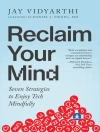In an era marked by insecurity from neoliberalism, financial volatility, political instability, regional conflicts, pandemics, and the climate crisis, Artificial Intelligence (AI) is revolutionizing our work, organizations, societies, and the environment. This critical text explores who truly benefits from AI′s development and deployment, offering a comprehensive overview of AI′s nature, history, and applications. It delves into crucial themes such as the future of work, digitalization, neoliberalism′s impact, power dynamics, ethics, inequality, gender, race, intersectional discrimination, and environmental sustainability.
Unlike practical machine learning guides, this book examines how AI and AI-based technologies are transforming work, highlighting both benefits and potential harms. Combining critical management and leadership studies with organizational sociology, it addresses societal implications, inequality, ethics, and power often overlooked by other textbooks. John Bratton′s lucid and engaging writing style brings a cutting-edge subject to life, blending breadth, critical analysis, and academic rigor. Contemporary examples illustrate AI′s real-life implications for organizations and work today, while thought-provoking questions encourage readers to engage with and reflect on the topics throughout.
Authored by John Bratton, an Honorary Professor at Queen’s University Belfast, and Laura Steele, a Senior Lecturer in Business and Society at Queen’s University Belfast, this interdisciplinary text is essential for students studying contemporary and emerging issues in business and management, including AI, business analytics, digitalization, and the future of work. It is also recommended for courses on the sociology of work, ethics, organization studies, management, leadership, and HRM. This book is poised to become an essential textbook for courses on AI, digitalization, and the future of work, making it a valuable resource for students and educators alike.
Inhaltsverzeichnis
Part 1 Historical and Global Context
1 Technology, Societal Change, and Artificial Intelligence – John Bratton
2 The New Dark Age of Artificial Intelligence – Shireen Kanji
3 Neoliberalism and Global Supply Chains – Jamie Woodcock
4 Global AI Policies and International Business – Claire Kilpatrick & Kieran M Conroy
5 Financialization, Artificial Intelligence, and Employment – Rachelle Pascoe Deslauriers
6 The New Enigmas: AI and Platform Work – Edward Granter and Mattia Bosciano
7 Just AI? Gender, Power, and Intersectional Discrimination – Birgit Schippers
Part 2 Key Issues
8 Power and Artificial Intelligence – Saara Ala-Luopa, Thomas Olsson, Mohammad Hossein Jarrahi
9 Developing and Deploying Ethical AI: A Global Challenge – Laura Steele and Roslyn Larkin
10 Artificial Intelligence and Leadership – Laura Steele
11 The Power of AI to Reshape Human Resource Management – John Bratton
12 Artificial Intelligence and Workers’ Voice: A Threat to Democracy? – Rea Prouska and Kabiru Oyetunde
13 Re-thinking Work-Life Balance in the Age of AI: Exploring the Intersections of Gender, Race, Age, and Disability – Stuart Mc Clure, Bahareh Ansari, Julie Mc Candless, and Laura Steele
14 AI and Organizational Sustainability in the Face of the Climate Crisis – Andrew Bratton
Über den Autor
Laura Steele is a Senior Lecturer in Business and Society at Queen’s Business School, Queen’s University Belfast, where she also serves as the Director of Ethics, Responsibility, and Sustainability.






